
BORING LOG BASICS: PART 2:
Benefits of Fundamental Field Analysis
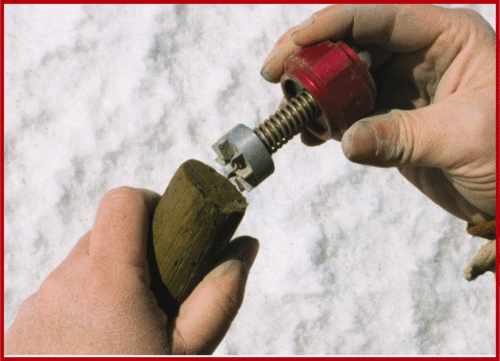 Competitive bidding has forced environmental project managers to more closely examine the process at which we approach subsurface investigations. Many problems may be avoided when field staff are capable of thinking on their feet and understand the context for their work. This webinar provides a meaningful process and some ways to help staff to confidently take the mystery out of the subsurface - which is the job we are hired to do as professionals
Competitive bidding has forced environmental project managers to more closely examine the process at which we approach subsurface investigations. Many problems may be avoided when field staff are capable of thinking on their feet and understand the context for their work. This webinar provides a meaningful process and some ways to help staff to confidently take the mystery out of the subsurface - which is the job we are hired to do as professionals
TAKING THE MYSTERY OUT OF THE SUBSUFACE ®
This 60-minute webinar shows the benefits of thinking on our feet and addresses the common field problems that plague our industry. Attendees will benefit from this webinar by learning how adjusting field perspectives and procedures can improve meeting project objectives and control project costs by:
- Identifying and managing unexpected subsurface conditions
- Cope with changes in the field and presenting change orders
- Minimizing wasted field efforts
- Creating a process that allows real-time QA/QC for subsurface characterization and mapping
Hydrogeologic field analysis is a project management style that supports making field decisions during field activities, making sense of subsurface samples from boring-to-boring, targeting meaningful monitoring well placements, and selecting geotechnical samples that are rational and diagnostic of actual site-specific conditions.
BENEFITS OF FIELD ANALYSIS
One of the first steps in a fundamentally sound subsurface investigations is BORING LOGS that are complete and accurate. Most boring logs can be improved with a few simple changes. A change in perspective about how we see the sedimentary sequence can often simplify the process while helping prepare more reliable boring logs.
Describing every detail of every sample is not the answer. When the field professional understands (1) geologic context and (2) scale of deposition, and (3) affects of secondary weathering, it is the first step in Taking the Mystery Out of the Subsurface.
Let's face it, we all have preferences, styles and habits when preparing boring logs. Most of our habits are sufficient, but most professionals realize that education, training and practice help the ability of staff to think on their feet while yielding boring logs that are accurate and complete...and credible.
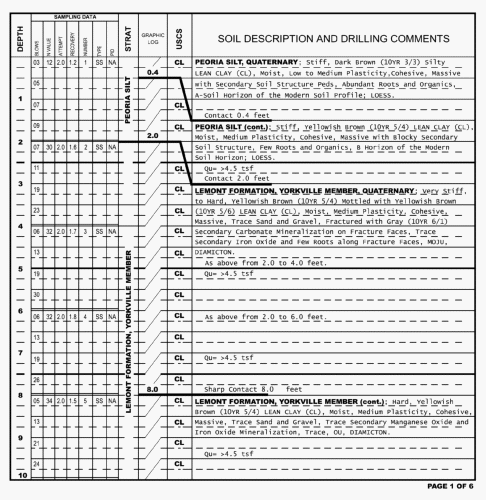
Benefits of Good Boring Logs
- Achieves the primary objective of taking the mystery out of the subsurface.
- It's money wisely spent.
- Enables others to reliably understand the subsurface.
- Create efficiencies and allows for certainty in other project tasks.
- Provides value beyond the immediate project.
- Showcases work for business development purposes.
- Allows personal pride and achievement.
Plus, this unique online experience invites site coordinators to share their own experiences in order to help all of us think better on our feet in the field.
PARTICIPANTS WILL BENEFIT BY:
- Gaining fundamental insights about field analysis
- Defining subsurface units
- Correlating borings in the field
- Basic field analysis to reduce subsurface uncertainty
- The use and misuse of high resolution sampling technologies
- Mapping the distribution of hydraulic conductivity
- Discovering tips and tricks from other webinar participants about logging techniques.
YOUR INPUT IS INVITED:
SHARE YOUR EXPERIENCE, INSIGHTS AND TECHNIQUES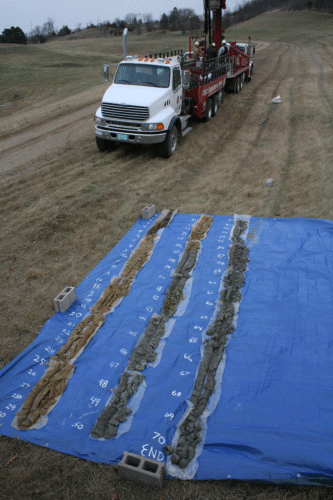
Site Coordinators from Part One of this series are sending their favorite stories, advice, and special logging techniques using an online portal. Each site coordinator can upload of 1,000-word written summary and two images to be shared with other's joining the webinar.
This is a unique opportunity to both share your favorite field technique plus learn tips and tricks from other's experiences and advice.
Each summary and image will be assembled into a PDF and distributed to the site coordinators about 3 days before the second webinar module. You are invited to share the PDF with your site participants in preparation for the second webinar module.
The instructors will summarize the submittals and present highlights during the second live webinar module. A post-webinar follow up will invite all participants to offer feedback on all items.
REGISTER NOW for this unique online experience that presents boring log basics plus invites you to share your insights too!
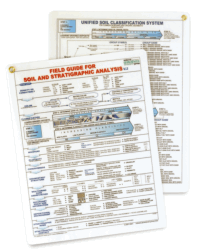 Free FIELD GUIDE FOR SOIL AND STRATIGRAPHIC ANALYSIS with each registration.
Free FIELD GUIDE FOR SOIL AND STRATIGRAPHIC ANALYSIS with each registration.
And, you may purchase additional field guides for a special discounted price of $10.00 plus shipping.
| Fee: |
249.00 USD for Part One,
Per Computer Site (unlimited participants per site), or
149.00 USD Each for Both Parts,
Per Computer Site (unlimited participants per site)
when Members also register for the following Webinar:

(discount will be applied during checkout when both are in your cart)
Pay one site registration fee and an unlimited number of participants from your organization can attend at that site.
|
| Instructor: |
Dan Kelleher, PG, CIPM and Dan Korth, PG |
|
| Handouts: |
Copy of Webinar Slides (pdf)
Record of Attendance Form (pdf)
|
| Duration: |
1.0 hour plus Q&A
(no restrictions on time limit for extra Q&A!)
|
Professional
Development: |
Earn 1.0 Professional Development Hours (1.0 PDH)
 |
A Record of Attendance Form is included free with each webinar for your record keeping and individual PDH verification. We ask your on-site coordinator to return the completed and signed copy of the Form to us following the webinar for (1) maintaining a separate copy as a service to attendees and (2) forwarding to NIU confirming attendance for those who order certificates.
Attendees may also order an official a Course Completion Certificate from Northern Illinois University for a small administrative fee. The Certificate is optional and may be ordered separately following the webinar to confirm your attendance and showcase the certificate on your office wall. Instructions for ordering certificates are given during the webinar.

* This webinar is eligible for the 'BUY THREE, GET THREE' discount; however ANY webinar series discount shown above cannot be combined with it.
Attendees will be invited to actively participate during this live and interactive on-line web seminar. Discussion is planned following the webinar for those who want to continue the session. Bring your questions to the webinar and present them to the instructor and other participants for exploring the best solution.
Instructors Bio
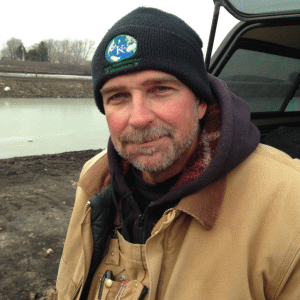 Dan Korth, PG, is Vice-President and Project Manager at Korth Environmental GeoSciences, Inc. Dan Korth is recognized for both the quality of his boring logs and his field analysis strategies of sedimentary sequences.
Dan Korth, PG, is Vice-President and Project Manager at Korth Environmental GeoSciences, Inc. Dan Korth is recognized for both the quality of his boring logs and his field analysis strategies of sedimentary sequences.
After earning his Geology B.Sc. at Illinois State University, Dan worked for Chevron, Inc. as a Geologist and Geophysical Analyst. He was later recruited by Waste Management, Inc for his keen ability to assess subsurface conditions in the field and became a technical group leader in a consulting role.
Today, Dan is recognized for his expertise in creating original and site-specific field analysis strategies. Dan teaches staff about the key observations of sedimentary successions and how to unravel their complexity through field analysis and meaningful boring logs.
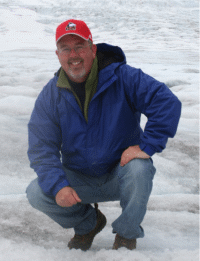 Dan Kelleher is a hydrogeologist and project manager who strives for excellence in subsurface characterization. His technical expertise is quantitative hydrogeology (in porous and fractured media), geotechnical analysis of sedimentary sequences, aquifer testing and predictive ground water modeling.
Dan Kelleher is a hydrogeologist and project manager who strives for excellence in subsurface characterization. His technical expertise is quantitative hydrogeology (in porous and fractured media), geotechnical analysis of sedimentary sequences, aquifer testing and predictive ground water modeling.
He promotes field analysis during stratigraphic characterization from boring to boring in order to utilize QA/QC processes fully throughout a project and help identify unexpected conditions as soon as they arise.
Dan is a registered Professional Geologist (PG) and Certified International Project Manager (CIPM). He earned his undergraduate degree in Geology from Monmouth College and his Master's in Hydrogeology from Northern Illinois University. Besides contributing to several other organizations, Dan is the Solid and Hazardous Waste Subcommittee Chair for the Association of Engineering Geologists.